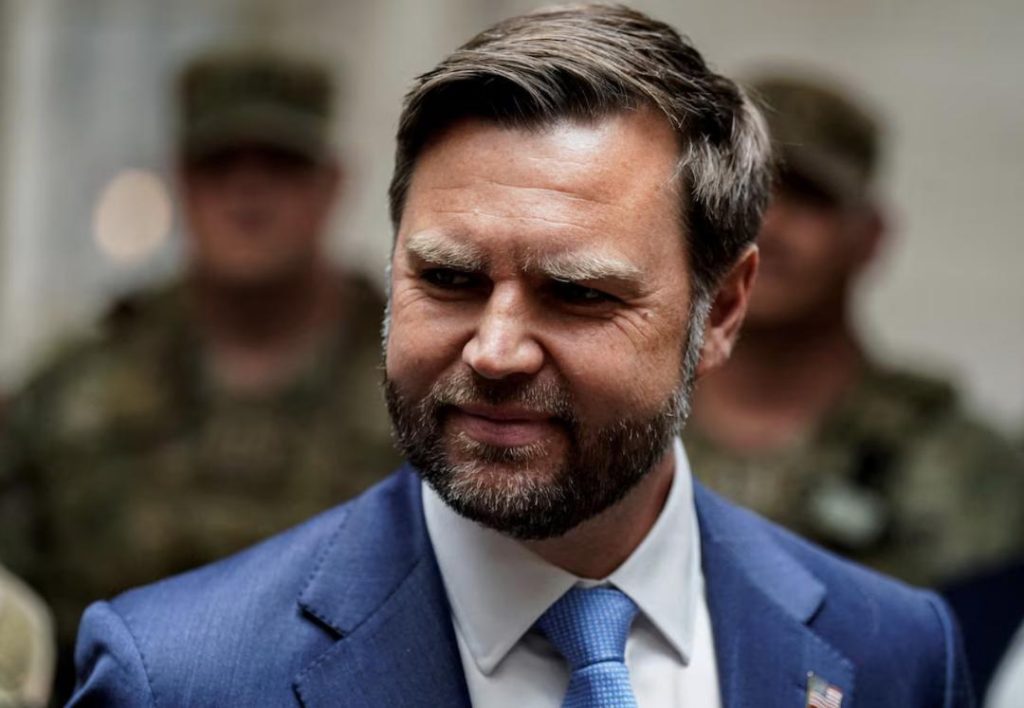
Europe Must Bear ‘Lion’s Share’ of Ukraine’s Security: JD Vance
In a significant development in the ongoing Ukraine-Russia conflict, US Vice President JD Vance has stated that European nations will have to bear the “lion’s share” of costs for Ukraine’s security guarantees if a deal is reached to end the war with Russia. Vance’s comments come as the world continues to witness the devastating impact of the conflict, with thousands of civilians caught in the crossfire and millions displaced.
Speaking on the issue, Vance emphasized that the US should not be expected to “carry the burden” of building Ukraine’s post-war security. This statement, made in a television interview, marked a significant shift in Washington’s stance on the conflict, with Vance clearly signaling that Europe would have to take a more active role in securing Ukraine’s future.
Vance’s remarks come on the heels of earlier comments made by US President Donald Trump, who indicated that America was willing to provide air support to Ukraine. While Trump’s statement was seen as a significant development in the conflict, Vance’s comments significantly temper expectations, implying that the US will not be taking on a major share of the costs associated with Ukraine’s security guarantees.
So, what do Vance’s comments mean for the future of Ukraine and the conflict with Russia? And what implications do they have for European nations and the United States? In this blog post, we will explore the impact of Vance’s statement, examining the potential implications for both Ukraine and the wider region.
Background to the Conflict
Before we delve into the impact of Vance’s comments, it is essential to provide some background on the conflict between Ukraine and Russia. The conflict, which began in 2014, has seen thousands of civilians killed, millions displaced, and large swathes of Ukrainian territory occupied by Russian-backed separatists.
The conflict, which began as a response to Ukraine’s decision to join NATO and pursue greater EU integration, has escalated significantly in recent years, with both sides engaging in significant and often brutal fighting.
Despite numerous attempts at a peace agreement, the conflict remains unresolved, with diplomatic efforts stalled and both sides dug in. The impact on civilians, meanwhile, has been devastating, with entire communities torn apart and human rights abuses rampant.
Europe Must Take Responsibility
Vance’s comments, then, come amid a backdrop of mounting concern about the impact of the conflict on civilians and regional stability. His statement, while significant, emphasizes the need for European nations to take a more active role in securing Ukraine’s future.
It is a message that has been echoed by many, including European leaders and diplomats. In recent weeks, there have been growing calls for Europe to take a more active role in the conflict, with many arguing that Washington cannot be expected to carry the entire burden of Ukraine’s security guarantees.
The argument, of course, is that European nations have a vested interest in ensuring Ukraine’s security, given the impact of the conflict on regional stability and, by extension, on European security. Moreover, Europe has a significant economic stake in Ukraine, with trade and investment between the two regions significant.
For Europe, the stakes are high. A continued conflict in Ukraine could have significant implications for regional stability, potentially destabilizing the entire region and creating a power vacuum that could be exploited by rival powers.
Moreover, a conflict-secured Ukraine would be a significant blow to Russian ambitions in the region, potentially weakening Putin’s grip on power and enabling Kiev to pursue a more independent foreign policy.
US Cannot Carry the Burden
Vance’s comments, then, are a clear recognition of the need for Europe to take a more active role in securing Ukraine’s future. His statement, while significant, emphasizes the need for Washington to avoid “carrying the burden” of Ukraine’s security guarantees.
This argument, of course, is both logical and pragmatic. For one, the US already carries a significant burden in terms of its foreign policy, with a growing number of conflicts and crises around the world demanding attention and resources.
Secondly, Washington cannot be expected to take on a significant share of the costs associated with Ukraine’s security guarantees, given the country’s own budgetary constraints and priorities.
For Europe, meanwhile, the stakes are high. A failure to take a more active role in securing Ukraine’s future could have significant implications for regional stability and, by extension, on European security.
Conclusion
JD Vance’s comments, then, are a significant development in the ongoing Ukraine-Russia conflict. His statement, while significant, emphasizes the need for Europe to take a more active role in securing Ukraine’s future, with Washington expected to “carry the lion’s share” of costs associated with the country’s security guarantees.
While Vance’s comments are a clear recognition of the need for Europe to take a more active role in the conflict, they also raise significant questions about the implications of Washington’s stance on the conflict.
For Ukraine, meanwhile, the stakes are high. A continued conflict could have devastating implications for civilians and the country’s future, while a peace agreement, secured with the active involvement of European nations, could bring significant benefits and stability to the region.
Ultimately, Vance’s comments, while significant, are a clear recognition of the need for Europe to take a more active role in the conflict, with Washington expected to “carry the lion’s share” of costs associated with the country’s security guarantees.



